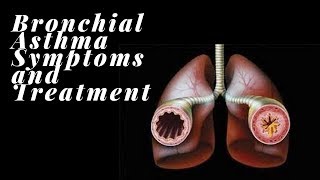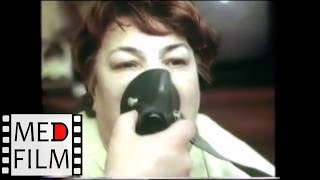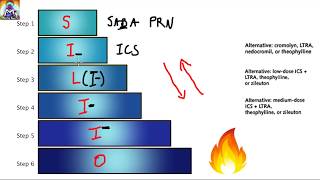Wednesday, 14 January, 2026г.
















Где искать: по сайтам Запорожской области, статьи, видео ролики
пример: покупка автомобиля в Запорожье
BRONCHIAL ASTHMA SYMPTOMS AND TREATMENT
Asthma is an inflammatory condition of the bronchi, which are the airways of our lungs. When a person has an asthma attack, the muscles around their airways tighten and the lining of the air passages swells. This is often accompanied by increased mucus production which clogs the airways. These three things combined reduce the amount of air that can pass through the bronchi, causing shortness of breath and other associated symptoms. Symptoms For some people, asthma is minor and is restricted to periodic shortness of breath. But for some, it can be severe and life-threatening, as it can prevent oxygen from reaching the lungs. Here are the common signs and symptoms of bronchial asthma: Shortness of breathe Wheezing Coughing, especially at night Pressure, pain, or tightening of chest Trouble sleeping Causes More than 20 million people suffer from asthma in the US, and the symptoms can appear suddenly. It is thought that a combination of genetic and environmental factors predisposes an individual to asthma. People are at the risk of asthma if - Someone in their family suffers from asthma They have an allergic condition They smoke or are exposed to second-hand cigarette smoke They are exposed to pollutants, exhaust smoke, or smog They are exposed to chemicals like fertilizers or strong household cleaners They are obese They had a low birth weight or were born prematurely Types and Triggers Bronchoconstriction may be triggered by a number of external or internal factors, and listed below are some of the common triggers according to the type of asthma - Allergic - This is the most prevalent type of asthma and the most common triggers are allergens such as - Pollen Animal proteins (you may be exposed to them through the hair or skin cells of animals) Dust Mites and Cockroaches Dust Mold Smoke Some perfumes, sprays, or cosmetics Air pollutants Exercise-induced - Exercise-induced bronchoconstriction or exercise-induced asthma, is a term used when a person experiences asthma symptoms only during exercise. Symptoms can also worsen in people suffering from other forms of asthma, so vigorous physical activity is also considered as a trigger. Nocturnal - Many asthma patients report worsening of their symptoms at night or when asleep. Some of the triggers associated with nocturnal asthma are - Reclining Air conditioning GERD Increased mucus production at night Prevention Asthma varies greatly from person to person, in its symptoms, triggers, and severity. Hence, you will have to work with your physician to identify the best treatment plan for you. However, there are some things that can prevent an asthma attack such as Identify your triggers and avoid them. Read and understand as much about asthma as you can, including the medications and emergency treatment. Use the peak-flow meter regularly to determine how freely air is moving through your body and whether the medication is working well. Follow your physician's advice. Report any changes in your symptoms promptly. If you have side effects from the prescribed drugs, report them immediately. If you are on medication, take a dose of your short-acting relievers, before starting a demanding physical activity. Article Credit: http://www.buzzle.com/articles/bronchial-asthma-symptoms-and-treatment.html Subscribe: https://www.youtube.com/channel/UCkVKbsi4wOka3tK0IWPFKRA/videos
Теги:
BRONCHIAL ASTHMA SYMPTOMS AND TREATMENT UCkVKbsi4wOka3tK0IWPFKRA bronchial asthma treatment medication bronchial asthma pathophysiology bronchial asthma vs asthma bronchial asthma asthmatic bronchitis treatment bronchial asthma types bronchial asthma treatment guidelines
Похожие видео
Мой аккаунт


 У вашего броузера проблема в совместимости с HTML5
У вашего броузера проблема в совместимости с HTML5


